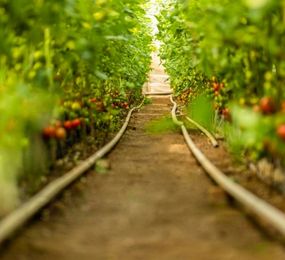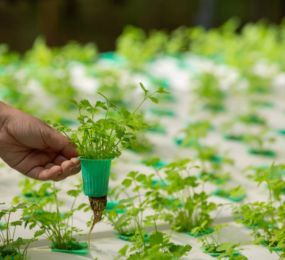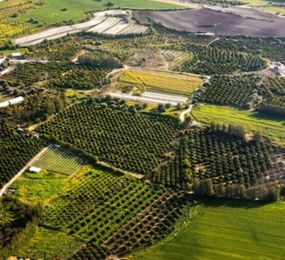As the highly anticipated 2nd Annual AgriVoltaics Europe event approaches, set to take place on 7th - 9th November, 2023, at the prestigious Steigenberger Airport Hotel in Amsterdam, Netherlands, one of the focal points will be the presentation on best practices for agrisolar integration. Agrisolar, the combination of agricultural practices with solar energy production, holds immense potential for sustainable food production and renewable energy generation. In this article, we explore the key best practices that maximize the benefits of agrisolar integration and contribute to a thriving agrivoltaic industry.
1. Strategic System Design:
Effective system design is crucial for successful agrisolar integration. Careful consideration should be given to factors such as solar panel orientation, height, and spacing, ensuring optimal energy generation without compromising crop productivity. Additionally, the selection of crops and their spatial arrangement within the agrisolar system should be based on their shade tolerance, water requirements, and market demand. Strategic system design maximizes resource utilization, promotes ecological balance, and enhances overall system efficiency.
2. Microclimate Management:
Maintaining an ideal microclimate within agrisolar systems is essential for crop health and productivity. The shading provided by solar panels can moderate temperature extremes, reducing the risk of heat stress on crops. Effective microclimate management includes considerations such as proper ventilation, adequate irrigation, and monitoring of temperature and humidity. By optimizing the microclimate, agrisolar systems can create a favorable environment for crop growth and minimize the risk of disease and pest infestations.
3. Crop Selection and Management:
Selecting appropriate crops for agrisolar systems is vital for ensuring compatibility with solar energy generation. Shade-tolerant crops that thrive in partial sunlight should be chosen. Additionally, employing crop rotation and diversifying the crop mix can help maintain soil health, prevent nutrient imbalances, and mitigate the risk of pest and disease buildup. Implementing sustainable farming practices, such as organic fertilization and integrated pest management, further enhances the ecological integrity of agrisolar systems.
4. Efficient Water Management:
Water management is a critical aspect of agrisolar systems, particularly in regions prone to water scarcity. Water-efficient irrigation practices, such as drip irrigation or precision sprinklers, should be employed to minimize water loss and ensure targeted delivery to crops. Incorporating rainwater harvesting systems can also help capture and store water for irrigation purposes. Effective water management not only supports crop growth but also optimizes energy generation by reducing the need for cooling mechanisms.
5. Collaboration and Knowledge Sharing:
The agrisolar industry thrives on collaboration and knowledge sharing among stakeholders. Farmers, solar energy developers, researchers, and policymakers should actively collaborate to exchange best practices, technological advancements, and research findings. This collaborative approach fosters innovation, accelerates the adoption of agrisolar systems, and creates a supportive network that benefits the entire industry. Events like the 2nd Annual AgriVoltaics Europe provide an ideal platform for such collaboration and knowledge exchange.
6. Policy Support and Market Incentives:
Governments and policymakers play a crucial role in facilitating the adoption of agrisolar systems. By providing supportive policies, incentives, and market frameworks, they can create an enabling environment for the growth of the agrivoltaic industry. Measures such as feed-in tariffs, tax benefits, and grants for agrisolar installations encourage investment and market development. Policy support and market incentives drive the adoption of sustainable agricultural practices and renewable energy generation, ensuring the long-term success of agrisolar integration.
The presentation on best practices for agrisolar integration at the 2nd Annual AgriVoltaics Europe event will shed light on the strategies that drive success in the agrivoltaic industry. By emphasizing strategic system design, effective microclimate management, crop selection and management, efficient water management, collaboration, and policy support, stakeholders can cultivate the full potential of agrisolar integration. As attendees embrace these best practices, they contribute to a more sustainable and resilient future, where agriculture and renewable energy production seamlessly coexist to address the pressing challenges of food security, climate change, and energy transition.
To register or learn more about the Forum please check here:http://bit.ly/3kR0v2R.
For more information and group participation, contact us: [email protected]
















